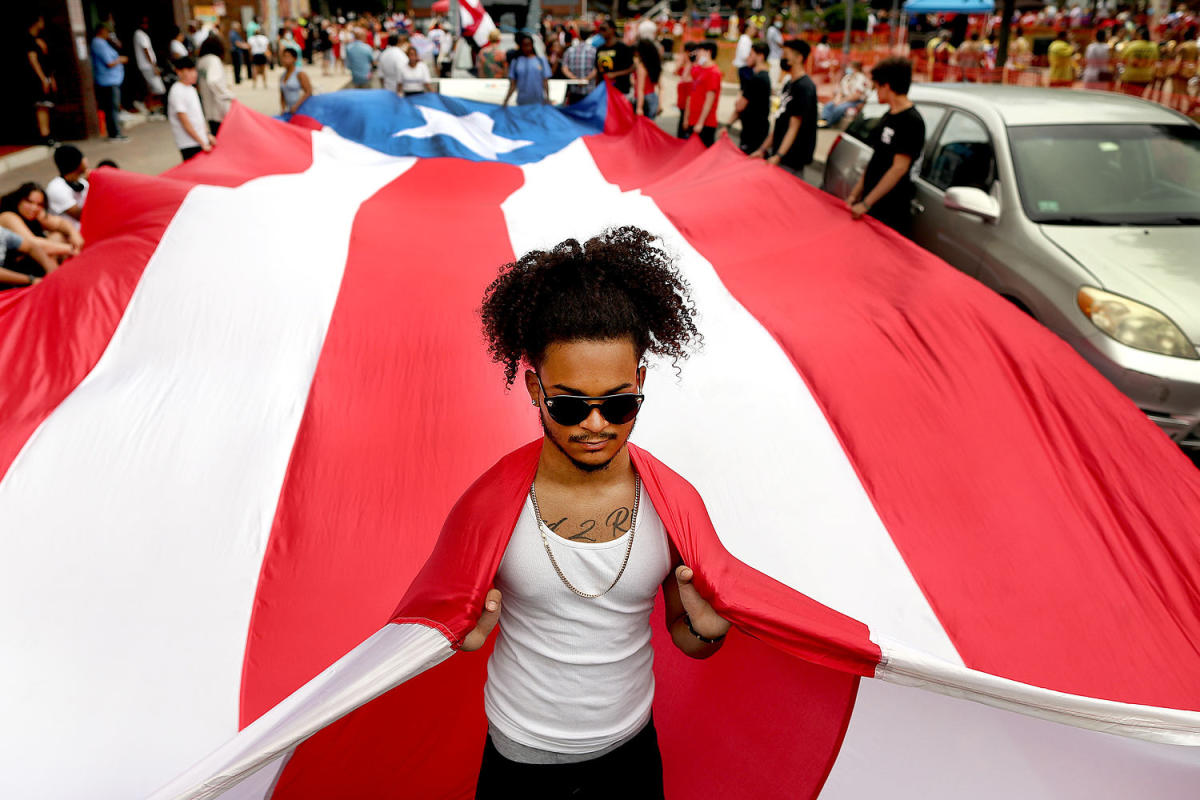
Asking Latinos about their “street race,” or how they’re perceived racially by strangers based on their physical appearance, could help improve how the government collects data about race and ethnicity, according to a new report from the Latino Policy and Politics Institute at the University of California, Los Angeles.
The ways in which federal government agencies, such as the U.S. Census, inquire about race and ethnicity — especially if one chooses just “Hispanic” or “Latino” — may not accurately reflect people’s experiences. This is particularly true for Black Latinos, according to the authors.
“There is a problem when we pretend that race and ethnicity are the same thing,” Nancy Lopez, a sociology professor at the University of New Mexico and a co-author of the report, told NBC News. “We may be missing an opportunity to make visible differences with anti-blackness,” even within the Latino community, she said.
The report comes after the government announced changes that will include the choice of “Latino” or “Hispanic” as a combined race/ethnic group in census and other forms.
While Latinos of every color can face overt and subtle racism and discrimination, these experiences will vary depending on how they’re perceived by others.
That’s why Lopez argues in the report that asking people about their “street race” could provide necessary insight into the different ways Latinos are racially categorized.
According to the Pew Research Center, Black Latinos are more likely than non-Black Latinos to report having experienced discrimination based on race. Afro-Latinos also face disproportionate levels of policing and higher poverty rates compared to non-Black Latinos as well as worse health and labor outcomes, according to the UCLA report.
“I want to make clear that ‘street race’ is not just skin color,” Lopez said, adding that Latinos who may have facial features that resemble those of East Asian people may have a lighter skin color and still be “subjected to Asian hate based on what they look like.” Lopez said the same is true about Latinos who are categorized as Black and subjected to anti-Blackness.
The U.S. Office of Management and Budget, which creates guidelines for federal data collection on race and ethnicity, largely relies on how people choose to self-identify.
Previously, Latinos had a two-part question for their identity in federal forms such as the census. They were asked whether they were Hispanic or Latino, and then asked to pick a race: “American Indian or Alaskan Native,” “Asian or Pacific Islander,” “Black,” “White” or “some other.”
The OMB changed this method in March, to allow people to choose “Hispanic” or “Latino” as a combined race/ethnicity category. They can still mark other more specific categories, such as “Black” or “white” as well.
OMB made the change in response to the results from the 2020 census, which showed that most Hispanics did not identify their race as white, Black or Asian, but instead were more likely to choose “some other race” on the census or to check “two or more races.”
While some scholars say that being able to mark “Latino” or “Hispanic” as a combined race/ethnicity reflects the way many people identify, others worry that just marking “Hispanic” or “Latino” can dilute important information on Latinos’ racial differences.
The newest OMB guidelines apply to all federal agencies. Lopez and the co-authors of the report say that additional questions could still be added to official forms, including the “street race” question.
“Race is not simply about how you identify, though that’s important. No one wants to be told how to identify, and I think we absolutely should ask people how they self-identify,” Lopez said. “But we also need a question on perceived race.”
For more from NBC Latino, sign up for our weekly newsletter.
This article was originally published on NBCNews.com
EMEA Tribune is not involved in this news article, it is taken from our partners and or from the News Agencies. Copyright and Credit go to the News Agencies, email news@emeatribune.com Follow our WhatsApp verified Channel




